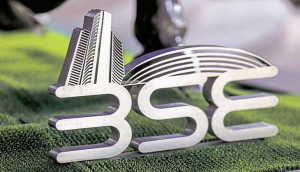Jaitley sends retrospective tax bill to Vodafone after opposing it

In retrospect
- NDA opposed UPA\'s retrospective tax move earlier
- Now Modi\'s govt has asked Vodafone to pay up
More in the story
- Why the change in stance?
- What it can mean for the economy?
After all the talk of improving ease of doing business in the country by making investor-friendly policies for foreign companies, the retrospective tax issue is back to haunt telecom major Vodafone.
The tax department has slapped a notice of Rs 14,200 crore on the company. It has also threatened to seize assets of the company, in case of a default.
Also read - India is misreporting growth data, it's becoming like China: R Nagaraj
The Pink media and officials of UK-headquartered Vodafone are shocked as the company had even built political pressure on the Indian government to resolve the issue when Prime Minister Narendra Modi visited the country last year.
The tactic seemed to be fructifying as Modi even accepted there that the UPA government's decision to introduce retrospective tax on companies was wrong.
At various other platforms, he and his Finance Minister, Arun Jailtey, have given signals that they would not trouble foreign investors as their government would like them to invest in 'Make in India'.
But rhetoric apart, the NDA government is actually using most of the Manmohan Singh government's policies in dealing with the tight economic situation.
Despite criticising the earlier regime's decision to introduce retrospective tax amendments to force companies such as Vodafone and Cairn Energy Plc to pay taxes on their past deals, the current governement quietly carried forward all such laws passed by the previous government with open-ended statements.
In the 2014 Budget, Jaitley masked his intention, saying that the Centre would not ordinarily bring about any change retrospectively which creates fresh liability.
Centre likely to mop up Rs 50,000 crore less than the its Rs 14.5 lakh crore budgetary estimate
But he added a caveat: "Does Indian Parliament have a jurisdiction to legislate retrospectively. The answer is: Yes, it has. I can't curtail this jurisdiction and I won't do that. Secondly, will the government undertake retrospective tax legislations. The answer is no."
However, regarding past cases, including Vodafone and Cairn he said: "They are pending in courts or other tribunals and the government awaits judgement. The legal process can resolve those cases."
Vodafone understood the government's intention and said: "We note the FM's announcement that existing cases arising from the 2012 retrospective tax law should follow the lawful process in which they are currently being adjudicated... Vodafone will therefore continue the process of international arbitration initiated under the India-Netherlands Bilateral Investment Treaty."
So, why did the government send a tax notice to the company just ahead of the Union budget? After all, it recently claimed that Foreign Direct Investment proposals have increased by 48% since it launched the 'Make in India' campaign.
Just last November, Vodafone said it would invest around Rs 13,000 crore in India and also launch an initial public offering. The amount is just about Rs 1,200 crore less than what the government demands as past dues.
A possible answer for this could be that the government inflated figures of FDI proposals to boost its image within India and abroad, but in reality, there won't it be any investment any time soon.
However, due to the slowdown, and increased liabilities towards managing its fiscal deficit, the government may be in need of additional revenue.
Given the subdued investment from the private sector in the current financial year, the government is under a lot of pressure to raise its own resources to invest in the economy.
NDA govt is actually using most of the Manmohan Singh's policies
According to credit rating agency, Crisil, private sector investment would decline 11% in 2015-16.
And the next financial year also does not hold out much hope.
Given the bearish stock markets, the government is not in a position to even meet its targets for disinvestment that has always helped the government to meet its fiscal requirements.
When President Pranab Mukherjee, the then FM, brought the retrospective tax law, India's fiscal condition was similarly tight and GDP growth had hit a decade low of 5%.
Currently, India's growth rate is much better: Government estimates peg it at 7.6% for the current financial year and may aim for an even higher number for the next.
Also read - Alarm bells: Bearish markets swallow Modi regime's high growth claims
At the same time, economists such as R Nagaraj and Ruchir Sharma have raised doubts over the government data.
Even if we accept the government data on growth, the biggest problem it faces is the shortfall in tax collection.
As per reports, the central government is likely to mop up Rs 50,000 crore less than the Rs 14.5 lakh crore it had estimated in Budget 2015-16. The main reason for this shortfall is less-than-expected direct tax collections from companies, individuals and firms.
Given the government's needs to increase revenue as well as capital expenditure in the new financial year, it wants to mop up funds through a tool, that was devised by the much criticised UPA government.
Edited by Joyjeet Das
More in Catch - Govt changes GDP growth target to 7.6%. Economists don't believe it
#NotesForMrJaitley 2: Let Raghuram Rajan clean up the bad loan mess
#NotesForMrJaitley 1: how to make this year's budget more farmer friendly
First published: 17 February 2016, 8:55 IST






![BJP's Kapil Mishra recreates Shankar Mahadevan’s ‘Breathless’ song to highlight Delhi pollution [WATCH] BJP's Kapil Mishra recreates Shankar Mahadevan’s ‘Breathless’ song to highlight Delhi pollution [WATCH]](https://images.catchnews.com/upload/2022/11/03/kapil-mishra_240884_300x172.png)

![Anupam Kher shares pictures of his toned body on 67th birthday [MUST SEE] Anupam Kher shares pictures of his toned body on 67th birthday [MUST SEE]](https://images.catchnews.com/upload/2022/03/07/Anupam_kher_231145_300x172.jpg)






